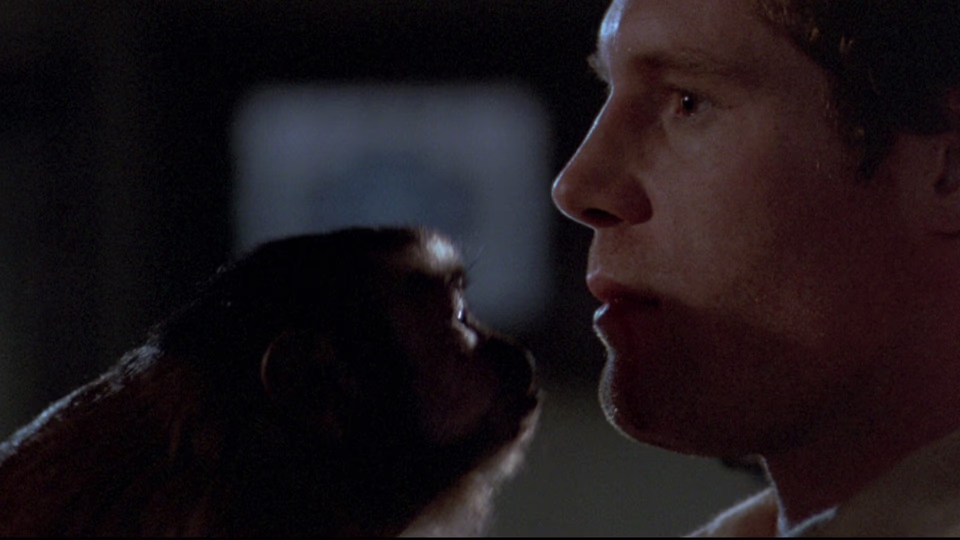Monkey Shines

George Romero can’t decide if he’s making a sensitive disability drama or a killer monkey movie. So he makes both. The result? A fascinating mess.
Jason Beghe plays Allan, an athlete struck down by a hit-and-run accident that leaves him quadriplegic. His girlfriend bolts. His nurse dominates. His mother smothers. Despondent, he attempts suicide. Then his scientist friend Geoffrey, played by John Pankow, brings him Ella, a capuchin monkey trained as a service animal.
Here’s the catch: Geoffrey has been secretly dosing Ella with an experimental intelligence serum. Here’s the bigger catch: it creates a telepathic link between man and monkey. Allan’s rage—at his body, his situation, his life—feeds into Ella. And Ella, lacking human restraint, acts on those murderous impulses.
For its first hour, Monkey Shines is something unexpected: a thoughtful character study. Romero treats Allan’s disability with genuine respect. We see the small victories, the humor he develops, the romance with Ella’s trainer, played by Kate McNeil. There’s even a sex scene—awkward, yes, but earned. Romero isn’t exploiting the wheelchair. He’s exploring it.
Then the monkey starts killing people.
The tonal whiplash is severe. One moment we’re watching a man reclaim his humanity. The next, he’s delivering Clint Eastwood one-liners to a primate: “I’ll tear you open and chew out your heart.” The finale goes full Conan the Barbarian—and not in a good way. I laughed out loud.
The screenplay can’t reconcile its two halves. When the trainer gets knocked unconscious by one well-timed monkey trip, it’s lazy writing masquerading as menace. When Allan becomes immobilized by a phone cord with the apparent tensile strength of steel cable, credulity snaps.
Yet there’s craft here. Tom Savini’s effects mostly hide the seams between real monkey and puppet. Stephen Root, in his film debut, is wonderfully unsettling as Geoffrey’s sadistic boss. Beghe commits fully, somehow maintaining dignity even when barking about “the laws of the jungle.”
The soundtrack hints at what might have been—a subtle strain of dark comedy runs beneath the ominous strings. Romero has the instincts. The opening accident is almost slapstick: we watch Allan pirouetting through the air. A young Stanley Tucci, playing the surgeon, quips: “Is he out? Good, we can talk about him.” These moments suggest Romero wanted to make something stranger, more audacious.
But he couldn’t commit. The earnest disability drama and the bonkers telepathic-monkey thriller never coalesce. They just occupy the same frame, fighting for control like Allan and Ella in that psychic feedback loop.
It’s bad enough to lose one movie. With Monkey Shines, Romero lost two.